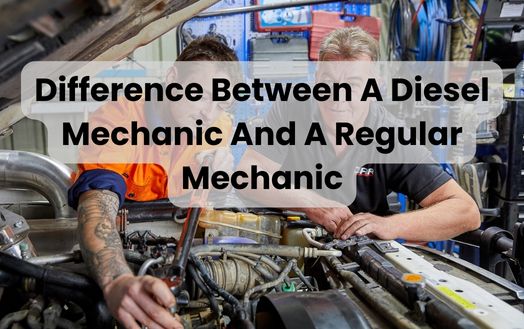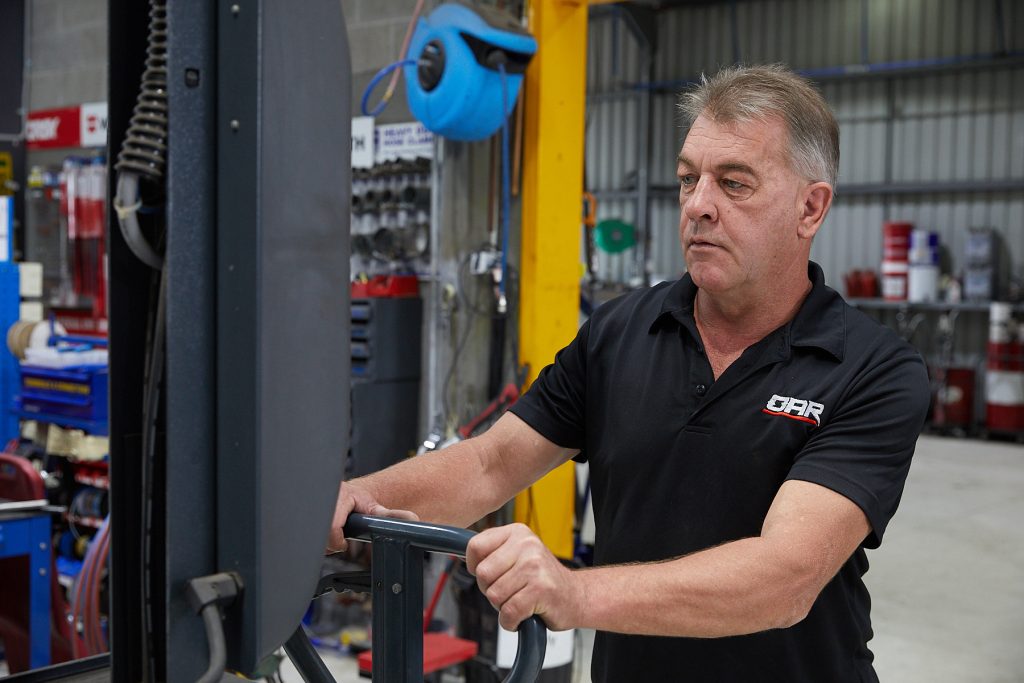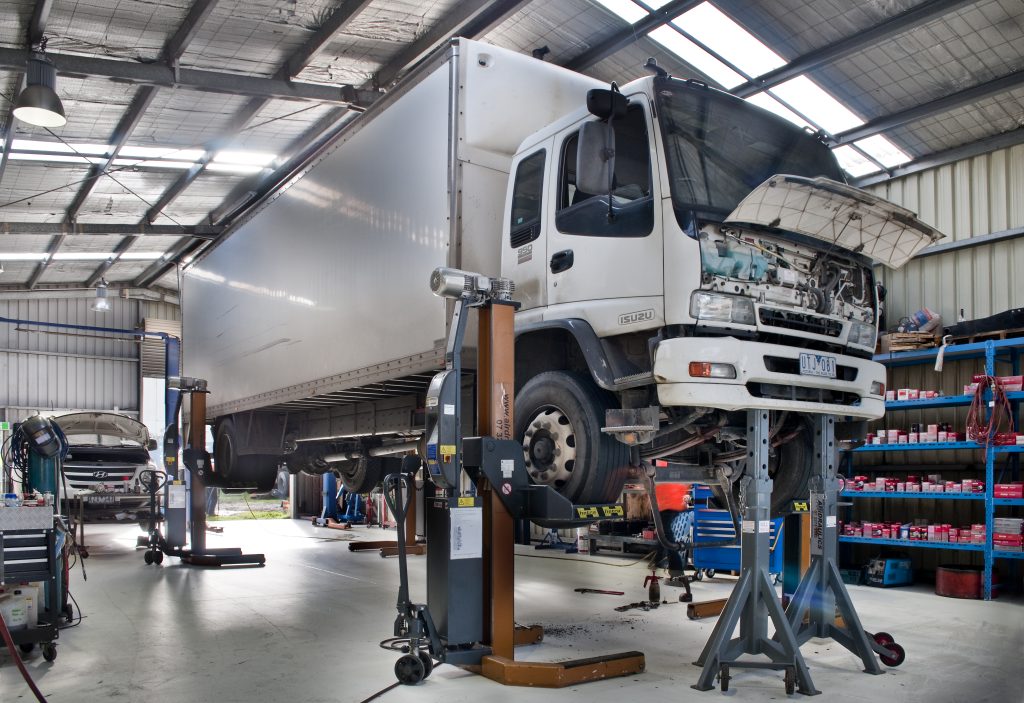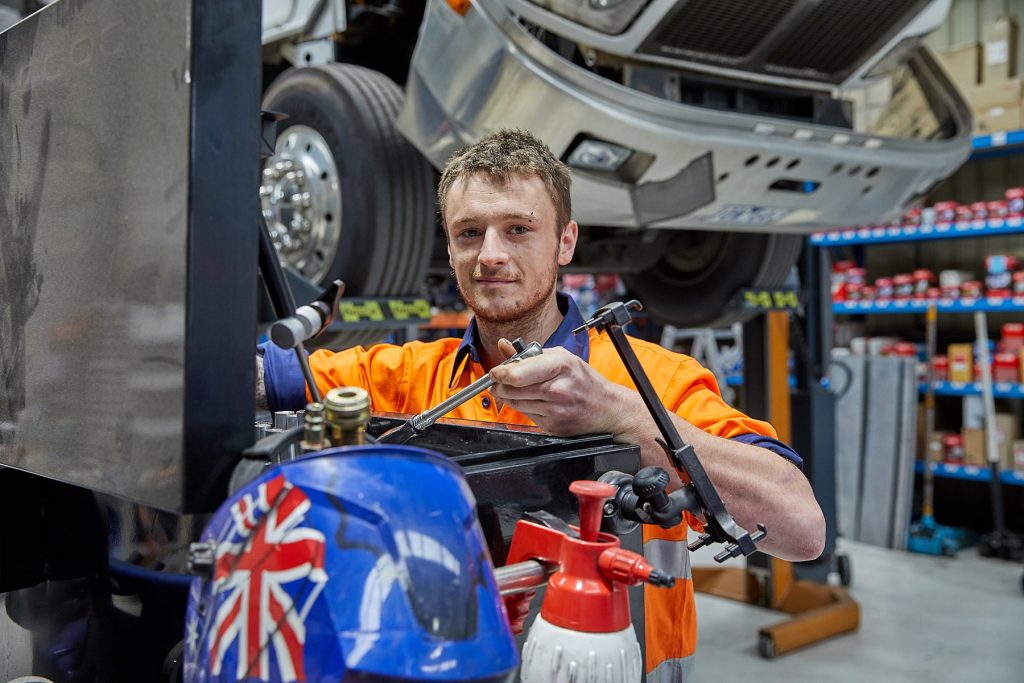
When comparing a regular mechanic to a diesel mechanic, it’s like contrasting a general practitioner with a specialist in a specific medical field. Both have their unique set of skills and knowledge, but they diverge in the intricacies of the engines they work on.
The differences go beyond just the type of vehicles they service; it extends to the training, tools, and even customer interactions. As we explore the difference between a diesel mechanic and a regular mechanic, you’ll gain insight into the specialized world of diesel mechanics and the nuances that set them apart in the realm of automotive repair.
Diesel mechanics focus on different engines, which distinguishes them from regular mechanics. A diesel mechanic works with diesel engines, which are found in trucks and other heavy-duty vehicles, while an auto mechanic works with gasoline engines in most cars. Diesel engines are more complicated and require more expertise than gasoline engines.
Diesel engines are efficient and durable, making them ideal for heavy-duty vehicles. Diesel mechanics must know how fuel injection, turbochargers, and glow plugs work. Auto mechanics prefer gasoline engines and focus on spark plugs, carburettors, and ignition systems.
As more companies use trucks and other diesel-powered vehicles for transportation and logistics, diesel mechanics are in demand in the automotive industry. Diesel engines are robust and require specialised maintenance and repair. Diesel mechanics help diesel-powered vehicles perform well and last as technology advances.

Diesel mechanics need specialised training in diesel engine systems and maintenance. Diesel engines are more complex than regular mechanics, so they need more mechanical training. Engine repair, electrical systems, and computer diagnostics are common training areas for auto mechanics. Diesel mechanics’ specialised skills require more intensive training or vocational education.
Brakes, steering, suspension, and HVAC are common topics in auto mechanic training. Diesel mechanic training, however, covers diesel engine fuel systems, emissions control, and turbochargers. Diesel mechanics can work on trucks, buses, and construction equipment thanks to this focus on diesel-specific components.
Their expertise in diesel fuel systems, emissions control, and turbochargers distinguishes them from other mechanics. Diesel technicians master commercial cars and trucks’ complex diesel engines. We understand diesel engines’ complexities to optimise performance and efficiency.
Here are four key areas where diesel technicians excel:
With their specialized skills and training, diesel technicians keep commercial diesel vehicles running smoothly and efficiently.

Diesel technicians diagnose, repair, and maintain heavy diesel vehicles to optimize their performance. In contrast to auto mechanics, diesel mechanics specialise in the complex diesel engines found in trucks, buses, and construction equipment. Diesel mechanics meticulously repair the engines, transmissions, and electrical systems specific to diesel-powered machinery.
We must accurately diagnose issues as part of our job. This requires advanced technical skills and diagnostic tool use. Diesel mechanics must quickly fix the problem to get the vehicle back in service. We also change oil, inspect brakes, and replace worn parts to prevent costly breakdowns.
Diesel mechanics must also follow strict commercial vehicle safety and environmental regulations. These regulations are essential for heavy-duty diesel vehicle safety and environmental protection. Maintaining and repairing commercial diesel vehicles requires precision, expertise, and dedication.
Diesel vehicle servicing requires specialised tools and equipment to diagnose and repair complex engine systems. Automotive mechanics must know diesel engine tools versus gasoline engine tools. Let’s know more of the difference between a diesel mechanic and a regular mechanic.
Here are four key differences in the tools and equipment used by a diesel mechanic compared to a regular mechanic:
Diesel mechanics must understand and use these tools to diagnose and repair diesel engines in a variety of vehicles and machinery.

It shows the diverse settings of diesel mechanics, from discussing their tools and equipment to exploring their workplaces. The duties and challenges of diesel and regular mechanics differ greatly.
Trucking companies, construction sites, and transportation departments employ diesel mechanics. Heavy machinery, large vehicles, and specialised equipment characterise these environments. Regular mechanics work in auto repair shops, dealerships, and gas stations, repairing cars and motorcycles.
These diverse work environments require diesel mechanics to perform more specialised and demanding tasks. Diesel mechanics diagnose and repair complex engine, transmission, and fuel injection systems in buses, trucks, and heavy equipment. However, regular mechanics work on engines, brakes, and electrical systems in cars and motorcycles.
Diesel mechanics’ salaries and job prospects are crucial to attracting and retaining talent.

Certificates and licences are essential for diesel mechanics to demonstrate competence and comply with industry standards. The National Institute for Automotive Service Excellence (ASE) certifies diesel and regular mechanics. These diesel engine certifications verify vehicle diagnosis and repair skills.
For mechanics to work legally, state or local governments often require licensure. To obtain a licence, diesel mechanics and regular mechanics need to pass exams and meet experience requirements.
The automotive industry is constantly changing, so certifications and licencing are crucial. New diesel trucks and machinery require specialised service due to rapid technological advancement. Having relevant certifications and licences shows mechanics’ commitment to professional development and ability to provide high-quality service according to industry standards. In the automotive service industry, continuing education and certification are essential and strategic.
Let’s examine diesel and regular mechanics’ daily tasks and repairs. Both diesel and regular mechanics can diagnose and fix problems. They frequently repair and maintain:
Diesel and regular mechanics need creativity and a deep understanding of complex systems. They use the latest technologies and methods to diagnose, repair, and maintain vehicles to the highest standards.

Diesel and regular mechanics must communicate with customers on a daily basis. Excellent service and trust are our priorities with customers. To ensure customer confidence in our work, we answer vehicle questions and concerns.
Clear communication with customers is essential when changing oil or filters, fixing engines, or performing routine maintenance. Diesel mechanics may focus more on commercial vehicles, where the stakes are higher and timely repairs are essential for business success. Regular mechanics, however, handle more vehicle types and customer needs.
We explain to customers why their vehicles need repair in our daily interactions. We aim to please customers by simplifying technical issues and offering transparent pricing. Our goal is to fix cars and build long-term relationships with our customers.
Career advancement in diesel and regular mechanics depends on specialized knowledge and expertise. Consider these key points:
In conclusion, diesel and regular mechanics have many automotive industry career paths to advance and specialize in. Diesel mechanics work on different engines than auto mechanics, but both are essential to vehicle maintenance. Auto mechanics work on gasoline engines, while diesel mechanics specialise in diesel engines, which have different combustion processes.
Understanding the difference between a diesel mechanic and a regular mechanic can help automotive career candidates decide where to focus. Auto mechanics work on electrical, transmission, and engine components, while diesel mechanics focus on diesel engine technology and maintenance.
Auto and diesel mechanics must keep up with automotive technology to stay competitive. Specialising in emerging fields like hybrid or electric vehicle maintenance can lead to growth and expertise. Mechanics can succeed in this dynamic and vital field by learning and adapting to industry trends.
Diesel mechanics can repair gasoline engines. Although they specialize in diesel engines, they can also apply their skills to gasoline engines.
A diesel mechanic with a strong engine mechanic background can quickly adapt to gasoline engines. A skilled mechanic can adapt and solve problems regardless of the engine they’re working on.
According to our experience, diesel mechanics work different hours than regular mechanics.
Diesel engines are complex and require more complicated repairs and maintenance, so diesel mechanics may work longer hours.
Depending on the vehicle they service, regular mechanics may work more standard hours. Both roles need flexibility and adaptability to handle different work schedules.
When working on diesel engines, diesel exhaust fumes can be harmful. These fumes contain carbon monoxide and particulate matter, which can cause respiratory and other health issues.
To reduce these risks and protect themselves, mechanics must wear protective gear and work in well-ventilated areas.
Diesel mechanics face unique challenges and require specialised skills, which can affect job satisfaction. Complex diesel engine troubleshooting and repair can be rewarding.
Diesel mechanics may be dissatisfied due to physical demands and longer hours. Each mechanic’s satisfaction depends on their preferences, skills, and workplace.
Working on diesel engines requires special regulations and safety measures. These may involve high-pressure fuel systems, hazardous emissions, and diesel engine technology.
To work safely and efficiently on diesel engines, mechanics must stay current on industry standards and safety protocols.